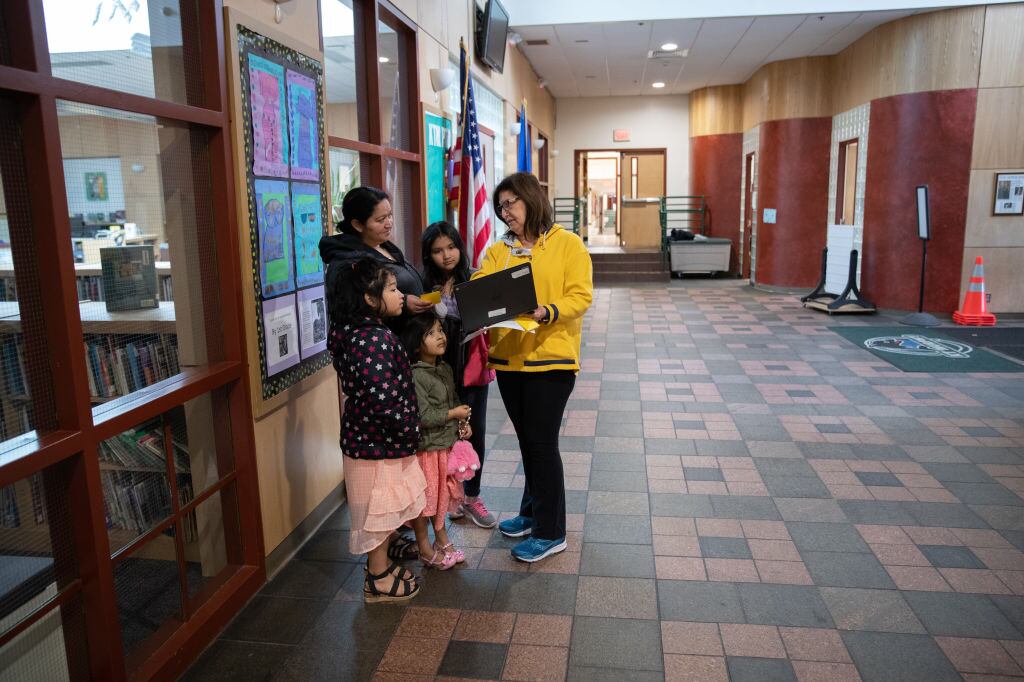Schools that have switched to remote learning can’t give up on language services for their students learning English, the federal education department reminded school districts this week.
New guidance, published Monday by the U.S. Department of Education, answers questions facing schools serving the nation’s some 5 million English learners during the coronavirus pandemic, which has closed schools across the country.
The department already gave states permission to skip one critical requirement: giving an annual English proficiency exam. But the guidance goes into more detail about how schools might make up those tests next year, decide what kinds of classes students should be placed in this fall, and handle students who might have “tested out” of language services this spring.
The guidance comes two months after schools began closing, several weeks after the department clarified schools’ responsibilities to students with disabilities, and as some school districts are wrapping up their academic years. But it could help districts still confused about their responsibilities and districts planning how they will serve English learners in the fall.
Here are a few takeaways:
- The basics: If a school district is providing remote learning to students, it must provide language support to English learners. Department officials say they understand “during this national emergency, schools may not be able to provide all services in the same manner they are typically provided.”
- What learning looks like: School districts should continue providing support similar to what they had provided before school buildings closed, the guidance suggests. If a traditional classroom teacher and an ESL teacher usually teamed up to provide accommodations for a student, for example, they should try to do so now, collaborating virtually or by phone. Instruction can happen by phone, online, or through written assignments, with language services provided “to the greatest extent possible.”
- Showing proficiency: Schools can’t remove a student’s English learner status “unless the student has demonstrated proficiency on a valid and reliable assessment” of their listening, speaking, reading, and writing skills. Department officials say if schools weren’t able to give those proficiency assessments before school buildings closed, they can give them in the fall.
- Screening students for services: Districts teaching students remotely are still required to screen new students to see whether they require English language services within 30 days. That screening can be done remotely.
- What might have changed: Department officials caution that English learners’ progress may have stalled. Schools should be on the lookout for students whose English language proficiency decreased “because they may have experienced limited instruction for an extended time during the school closures.” Students who were close to being classified as proficient may now need more support, and students who already took the proficiency assessment and were set to stop receiving English services in the coming school year should be closely monitored in case they need additional help or need to be re-classified as English learners.
Read the guidance here.






